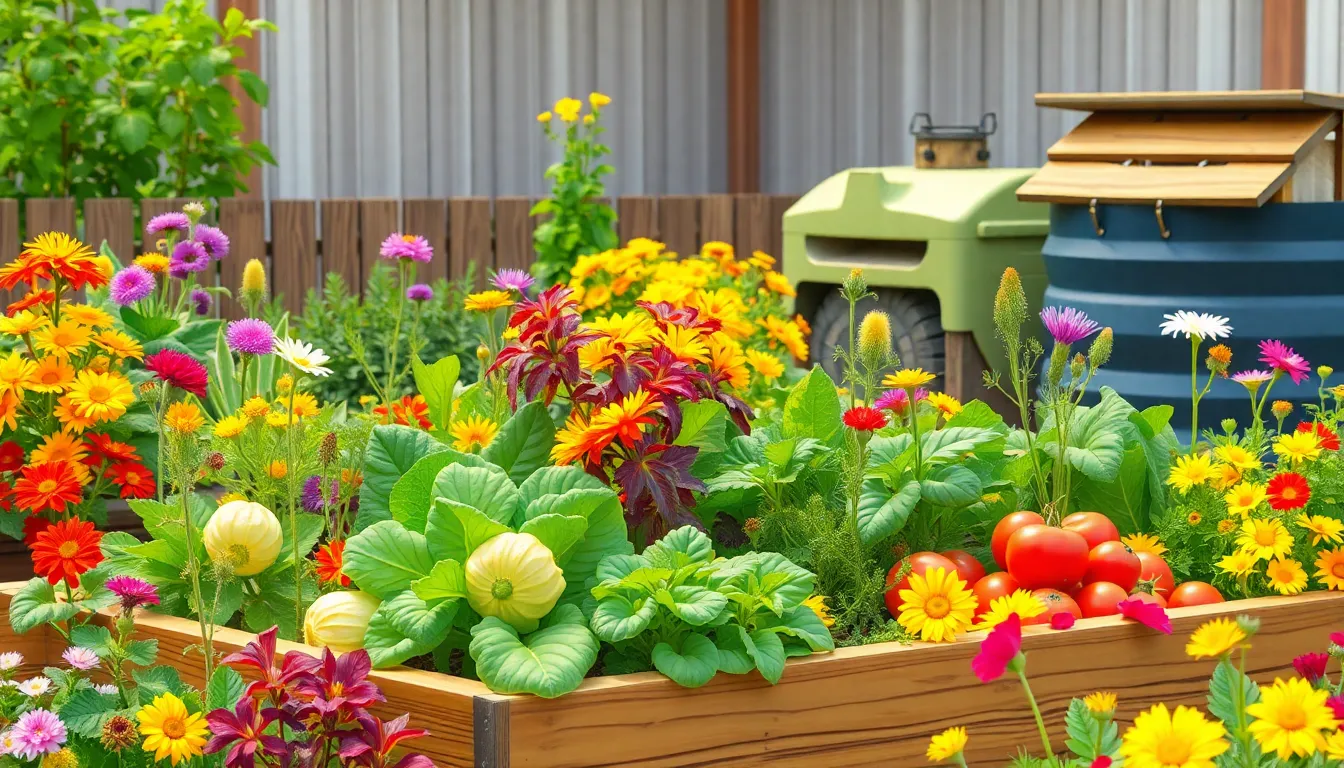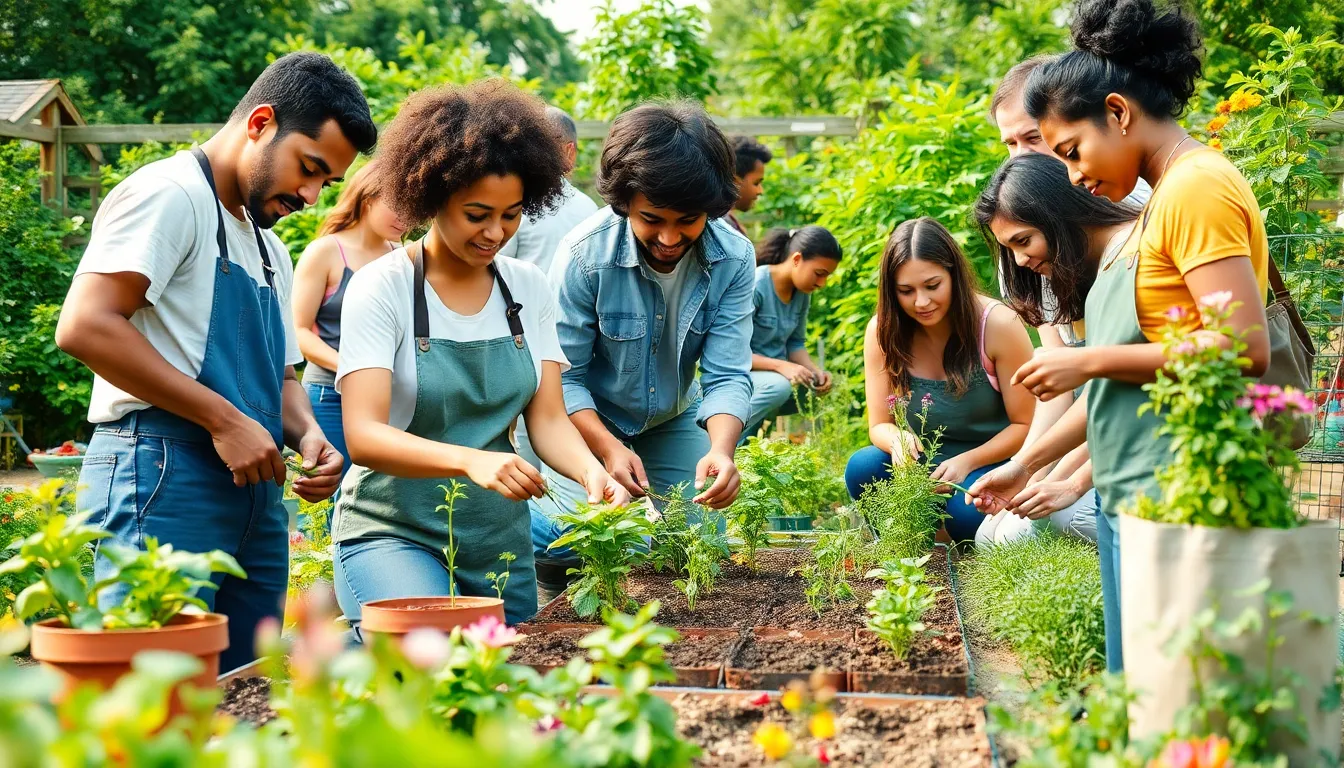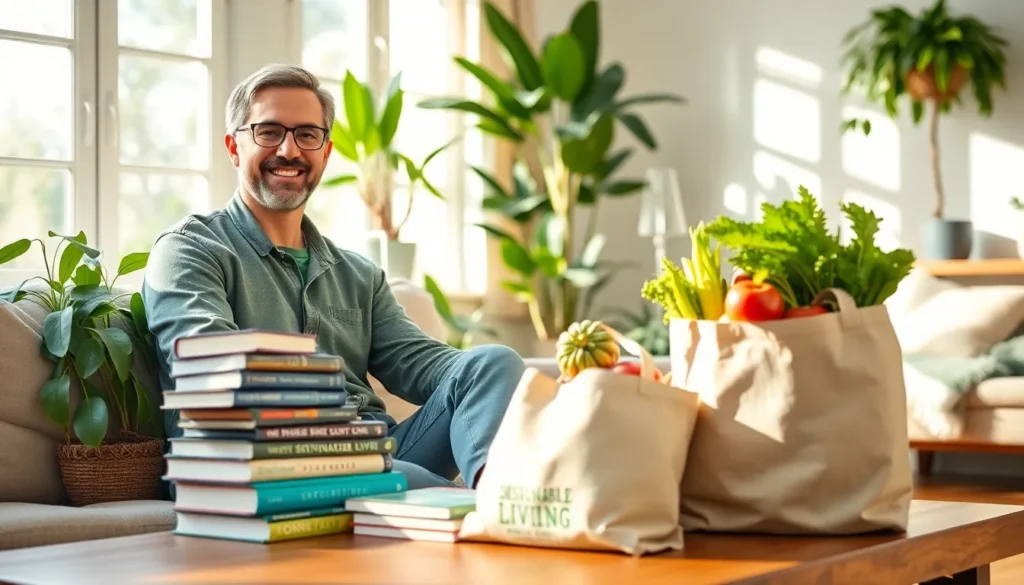In a world where plastic straws are the new villain and eco-friendly choices are the superheroes, sustainable living books have swooped in to save the day. These pages are packed with tips and tricks that make living green as easy as pie—vegan pie, of course. Forget the guilt trips; it’s all about embracing a lifestyle that’s not only good for the planet but also surprisingly fun.
Table of Contents
ToggleBest Sustainable Living Books
Sustainable living books offer valuable insights and inspiration for those seeking an eco-friendly lifestyle. They serve as practical guides that make green living enjoyable and achievable.
Fiction That Inspires Sustainability
Stories with environmental themes often resonate deeply with readers. “The Overstory” by Richard Powers explores the interconnectedness of human lives and trees, encouraging appreciation for nature. “Flight Behavior” by Barbara Kingsolver addresses climate change’s effects on rural communities, prompting discussions about conservation. Novels like these utilize engaging narratives to raise awareness about critical environmental issues while motivating readers to consider their impact on the planet.
Non-Fiction Must-Reads
Non-fiction books feature practical advice for sustainable living. “Zero Waste Home” by Bea Johnson provides strategies for minimizing waste through simple changes. “The Story of Stuff” by Annie Leonard explains the lifecycle of consumer products, emphasizing the importance of mindful consumption. “Braiding Sweetgrass” by Robin Wall Kimmerer combines indigenous wisdom with scientific knowledge, fostering a connection between humans and the environment. These books simplify complex concepts into actionable steps, guiding individuals toward a more sustainable lifestyle.
Categories of Sustainable Living Books


Sustainable living books cover various categories. These categories help readers find resources that align with their specific interests and goals.
Gardening and Permaculture
Gardening and permaculture books emphasize organic practices and ecosystem principles. Titles in this category offer techniques for creating sustainable gardens. “Gaia’s Garden” by Toby Hemenway provides insights on designing productive landscapes. These resources demonstrate how to cultivate food while enhancing biodiversity. Readers learn about soil health, companion planting, and water conservation strategies. Engaging with these practices not only supports ecological balance but also fosters self-sufficiency.
Zero-Waste and Minimalism
Zero-waste and minimalism books focus on reducing consumption and waste. This category advocates for thoughtful consumption and encourages individuals to live with less. “Zero Waste Home” by Bea Johnson outlines practical steps for decluttering and reusing materials. Readers find actionable tips for minimizing household waste, from shopping habits to food storage. Strategies outlined in these books emphasize mindful living and a commitment to sustainability. Adopting these principles promotes an eco-friendly lifestyle while enhancing overall well-being.
Benefits of Reading Sustainable Living Books
Sustainable living books offer numerous advantages for those looking to adopt greener lifestyles. They provide readers with valuable insights and strategies for making impactful changes.
Education and Awareness
Reading these books enhances knowledge about environmental issues. It educates individuals on the consequences of consumption and waste. Many authors highlight the importance of sustainability practices. They also discuss the role of personal responsibility in addressing climate change. Engaging narratives raise awareness, making complex topics accessible to a broader audience. These sources often feature stories that exemplify the challenges and triumphs of sustainable living. Such narratives inspire readers to reflect on their own habits and the environment.
Practical Tips for Everyday Life
Sustainable living books deliver actionable steps for daily routines. They offer concrete advice on reducing waste and conserving resources. Readers learn about composting, energy efficiency, and mindful consumption techniques. Many books include DIY projects that encourage reusing materials. Suggestions range from simple changes like bringing reusable bags to reducing plastic use in the kitchen. These practical strategies empower individuals to make significant contributions to sustainability at home. Each tip serves as a building block toward a greener lifestyle and improves overall well-being.
How to Choose the Right Sustainable Living Book
Selecting a sustainable living book requires thoughtful consideration. Understanding personal interests guides the choice effectively.
Consider Your Interests
Assessing personal interests significantly influences the selection process. Readers passionate about gardening may prefer books like “Gaia’s Garden” by Toby Hemenway for organic techniques. Those intrigued by minimalism might find “Zero Waste Home” by Bea Johnson more relevant. Topics like climate change, eco-friendly habits, or resource conservation resonate differently with various individuals. Matching interests with the book’s focus enhances engagement and retention. Sustainable living encompasses diverse subjects, making it essential to explore different areas that spark curiosity.
Check Reviews and Recommendations
Researching reviews and recommendations provides valuable insights. Websites such as Goodreads and Amazon offer user-generated reviews reflecting genuine experiences. Reviews often highlight strengths and weaknesses, helping readers make informed choices. Recommendations from friends, family, or online communities also offer trustworthy guidance. Consulting environmentally-focused blogs and influencers can reveal popular choices that resonate with current trends. Gathering a range of opinions aids in finding a book that not only educates but also inspires action toward a sustainable lifestyle.
Sustainable living books serve as invaluable resources for anyone looking to make a positive impact on the environment. By providing practical advice and inspiring narratives, they empower readers to embrace eco-friendly practices in their daily lives. Whether it’s through gardening, minimalism, or understanding the broader implications of consumer choices, these books offer a wealth of knowledge that can transform habits and foster a deeper connection to the planet. As individuals explore these titles, they’ll find not only guidance but also motivation to contribute to a more sustainable future. Engaging with these works can spark meaningful change and encourage a collective effort toward a healthier world.






